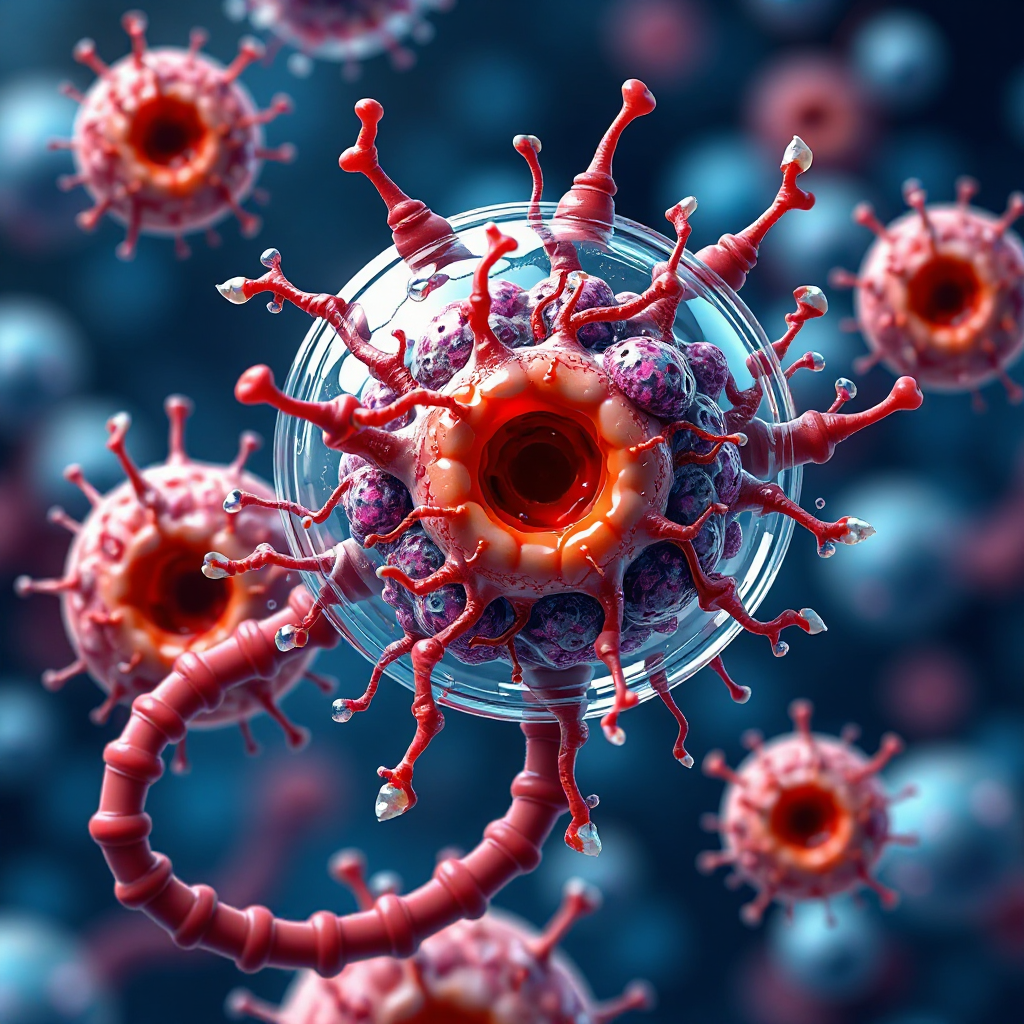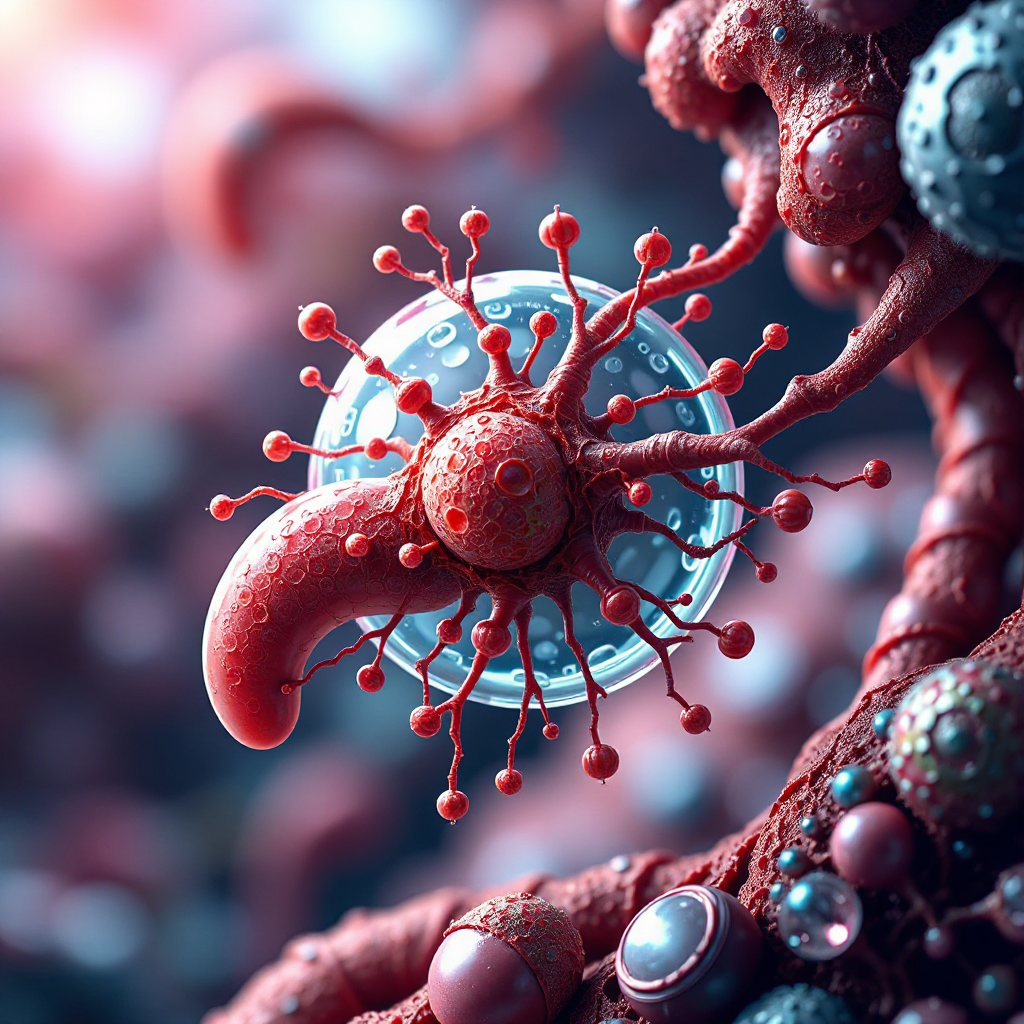What Are the Symptoms and Causes of Penile Cancer

Penile cancer is a rare but serious condition that affects men worldwide. Globally, the incidence rate is 0.8 per 100,000, with over 36,000 new cases reported in 2020. While the disease is more common in low- and middle-income countries, rising cases have been observed in parts of Europe. Early detection plays a critical role in survival, as localized cases have a five-year survival rate of 79%. You can protect yourself by staying informed about the symptoms, practicing good hygiene, and seeking medical advice if you notice unusual changes.
Key Takeaways
Look for early signs of penile cancer, like lasting sores or strange discharge. Finding it early can make treatment work better.
Keep clean, especially if you are not circumcised. Washing often can help stop infections that might cause cancer.
Get the HPV vaccine. It protects against harmful types of HPV that can lead to penile cancer.
Stop smoking or using tobacco. Quitting lowers your chance of getting penile cancer and keeps you healthier.
Visit your doctor regularly. Checkups can find problems early, making treatment more successful.
Symptoms of Penile Cancer

Common Symptoms
Changes in the skin of the penis, such as thickening, discoloration, or lumps
You might notice changes in the skin of your penis, such as areas that feel thicker or appear discolored. These changes can include lumps, small crusty bumps, or flat, bluish-brown growths. Sometimes, a reddish, velvety rash may develop under the foreskin. These symptoms often indicate abnormal cell growth and should not be ignored.
A sore or ulcer that does not heal within 4 weeks
A sore or ulcer on your penis that persists for more than four weeks could be a warning sign of penile cancer. This sore might bleed or become painful over time. Unlike minor injuries, these ulcers do not heal naturally and require medical attention.
Unusual discharge or bleeding from the penis
Unexplained discharge or bleeding from your penis, especially if it has a foul odor, is another common symptom. This discharge may occur beneath the foreskin and could be accompanied by other changes, such as swelling or irritation.
Rare Symptoms
Swelling at the tip of the penis or in the groin area
Swelling at the tip of your penis or in the groin area might occur due to enlarged lymph nodes. This swelling can sometimes be mistaken for other conditions, but it is important to monitor any persistent changes.
Persistent pain in the penis
Pain in your penis that does not go away could be a less common symptom of penile cancer. This pain might occur during urination or sexual activity, making it difficult to ignore.
Difficulty retracting the foreskin (phimosis)
If you experience difficulty pulling back your foreskin, this could be a sign of phimosis, which is sometimes linked to penile cancer. This condition may also lead to other symptoms, such as discharge or swelling.
When to Seek Medical Attention
Importance of consulting a healthcare provider if symptoms persist
If you notice any of these symptoms, consult a healthcare provider promptly. Early detection plays a crucial role in improving treatment outcomes. Regular self-examinations can help you identify abnormalities early.
Early detection improves treatment outcomes
Detecting penile cancer early significantly increases the chances of successful treatment. Studies show that early diagnosis leads to better survival rates and more effective treatment options. By addressing symptoms as soon as they appear, you can take control of your health and improve your prognosis.
Causes and Risk Factors of Penile Cancer
Causes of Penile Cancer
Genetic mutations leading to abnormal cell growth
Penile cancer often begins with genetic mutations that cause cells to grow uncontrollably. These mutations disrupt normal cell functions, leading to tumor formation. Research highlights several key genes associated with penile cancer:
Gene | Mutation Type | Detection Rate | Prognosis Impact |
|---|---|---|---|
MYCN | Amplification | Poor prognosis | |
FAK | Amplification | 45.72% | Poor prognosis |
TP53 | Deletion | 51.43% | Poor prognosis |
Other Genes | Various | >10% | - |
Chronic inflammation or infections
Chronic inflammation, often caused by infections, can damage penile tissues over time. This damage may lead to abnormal cell growth. Conditions like balanitis or untreated sexually transmitted infections (STIs) can increase your risk.
Risk Factors
Human papillomavirus (HPV) infection (responsible for about one-third of cases)
HPV plays a significant role in penile cancer. Studies show that HPV is present in 15–80% of cases, with high-risk types like HPV16 found in 27.4% of tumors. Men with multiple sexual partners or early sexual activity face higher risks.
Poor hygiene, particularly in uncircumcised men
Poor hygiene can lead to the accumulation of smegma, a substance that irritates and inflames penile tissues. Phimosis, a condition where the foreskin cannot retract, further increases this risk.
Smoking and tobacco use
Tobacco contains carcinogens that damage DNA and weaken your immune system. Smoking also reduces your body’s ability to fight infections, increasing your vulnerability to penile cancer.
Age (most common in men over 50)
The risk of penile cancer rises with age, particularly in men over 50. This may be due to prolonged exposure to risk factors like infections or smoking.
Weakened immune system
A compromised immune system, such as in individuals with AIDS, makes it harder for your body to fight off infections and abnormal cell growth.
Myths and Misconceptions
Addressing common misunderstandings about penile cancer
Some believe penile cancer only affects uncircumcised men, but this is not true. While circumcision reduces risk, other factors like smoking and HPV also play a role. Another myth is that penile cancer is always fatal. Early detection and treatment significantly improve outcomes.
Prevention Strategies for Penile Cancer
Practicing Good Hygiene
Importance of cleaning under the foreskin
Maintaining proper hygiene is one of the most effective ways to reduce your risk of penile cancer. Regularly cleaning under the foreskin helps prevent the buildup of smegma, a substance that can irritate the skin and lead to chronic inflammation. Chronic conditions like balanitis, which is linked to poor hygiene, increase your risk of developing cancer.
Circumcision may lower the risk of smegma buildup, reducing inflammation.
Phimosis, a condition where the foreskin cannot retract, raises the risk of penile cancer by 25–60%.
Good hygiene practices, especially for uncircumcised men, are essential for prevention.
By washing the penis daily and ensuring the foreskin is clean, you can significantly lower your chances of developing this condition.
HPV Vaccination
How the vaccine reduces the risk of penile cancer
The human papillomavirus (HPV) is a leading cause of penile cancer, responsible for over half of cases globally. Receiving the HPV vaccine can protect you from high-risk strains of the virus that cause cancer.
The vaccine has a 90% efficacy rate in reducing genital warts.
It also reduces anal intraepithelial neoplasia by 77.5%, which highlights its effectiveness against HPV-related cancers.
Health experts recommend getting vaccinated before becoming sexually active. This proactive step can protect you from HPV and significantly reduce your risk of penile cancer.
Quitting Smoking
The link between tobacco use and penile cancer
Smoking introduces harmful carcinogens into your body, which damage DNA and weaken your immune system. These effects make it harder for your body to fight off infections and abnormal cell growth. While research on smoking cessation and penile cancer is limited, studies show that quitting smoking improves outcomes for other genitourinary cancers, such as bladder and prostate cancer.
Taking steps to quit smoking not only benefits your overall health but also reduces your risk of developing penile cancer. Avoiding tobacco is a key preventative strategy that you can adopt today.
Regular Health Checkups
Benefits of routine screenings and consultations
Routine health checkups play a vital role in the early detection of penile cancer. During these visits, your healthcare provider can examine for abnormalities or changes that might indicate cancer or precancerous conditions. This proactive approach allows for timely intervention, which significantly improves treatment outcomes and survival rates. Regular checkups also provide an opportunity to discuss any concerns or symptoms you may have noticed, ensuring that no warning signs are overlooked.
Tip: Combine routine health checkups with self-examinations to monitor your health more effectively. Early action can make a life-saving difference.
By staying consistent with these appointments, you empower yourself to take control of your health. Early detection not only increases the chances of successful treatment but also minimizes the need for more invasive procedures later on.
Safe Sexual Practices
Reducing the risk of HPV and other infections
Adopting safe sexual practices can lower your risk of contracting HPV and other infections linked to penile cancer. These habits protect you and your partner while promoting overall sexual health.
Use barrier methods, such as condoms or dental dams, during every sexual encounter.
Ensure proper use of condoms to maximize their effectiveness.
Choose condom-safe lubricants and avoid oil-based products with latex condoms.
Get tested for HIV and other sexually transmitted infections (STIs) with your partner before engaging in sexual activity.
Avoid sexual contact when under the influence of alcohol or drugs.
Clean sex toys thoroughly before and after use.
Consider pre-exposure prophylaxis (PrEP) to reduce the risk of contracting HIV.
Note: Consistent use of these practices not only reduces your risk of penile cancer but also helps prevent other serious health conditions.
By prioritizing safe sexual behaviors, you can protect yourself from infections that may lead to complications, including cancer. These steps are simple yet highly effective in maintaining your long-term health.
Importance of Early Detection

Benefits of Early Diagnosis
Higher success rates with early treatment
Detecting penile cancer early can significantly improve your chances of successful treatment. Studies show that patients who receive early treatment have better survival rates. For example, the five-year overall survival rate for men under 50 is 78.1%, compared to 63.1% for older men. Early detection allows doctors to use less invasive treatments, which can preserve more of your normal function and quality of life. Regular self-examinations and routine medical check-ups are essential for catching abnormalities before they progress.
Tip: Make it a habit to examine your genital area for any unusual changes, such as lumps, sores, or discoloration. Early action can save your life.
Encouraging Open Communication
Overcoming stigma to discuss symptoms with a doctor
Talking about symptoms related to penile cancer can feel uncomfortable, but open communication with your doctor is crucial. Many men delay seeking help due to embarrassment or fear, which can lead to worse outcomes. Remember, healthcare providers are trained to handle these discussions professionally and without judgment. Addressing your concerns early can lead to faster diagnosis and treatment.
If you notice persistent symptoms like sores, discharge, or swelling, don’t hesitate to schedule an appointment. By overcoming the stigma, you take an important step toward protecting your health.
Note: Early detection not only improves survival rates but also reduces the need for more aggressive treatments later on.
Available Treatment Options
Overview of common treatments for penile cancer
Treatment for penile cancer depends on the stage and extent of the disease. Here are some common options:
Surgery: Includes procedures like Mohs surgery, circumcision, wide local excision, or penectomy. Early-stage cancers often respond well to these methods.
Chemotherapy: Can be applied topically or administered systemically, depending on your needs.
Radiation Therapy: Advanced techniques like Cyberknife and IMRT target cancer cells while sparing healthy tissue.
Immunotherapy: Drugs like Imiquimod help your immune system fight cancer.
Ablation Therapy: Laser therapy and cryosurgery destroy cancer cells effectively.
The effectiveness of these treatments varies. Early-stage cancers often respond well to surgery, while advanced cases may require a combination of therapies. Recent advancements, such as targeted therapies and improved diagnostic tools, continue to enhance treatment outcomes.
Penile cancer is rare, but early detection makes it highly treatable. Recognizing symptoms like persistent sores or unusual discharge can help you act quickly. Understanding the causes, such as HPV infection or poor hygiene, empowers you to take preventive steps. Regular health checkups and open communication with your doctor ensure timely intervention. If you notice any unusual changes, consult a healthcare provider without delay. Taking these proactive measures protects your health and improves outcomes.
FAQ
What is the first sign of penile cancer?
The first sign is often a change in the skin of your penis. You might notice thickening, discoloration, or a lump. These changes can appear as small bumps, sores, or a rash. If you see anything unusual, consult a doctor promptly.
Can penile cancer spread to other parts of the body?
Yes, penile cancer can spread if left untreated. It may affect nearby lymph nodes or distant organs. Early detection reduces this risk. Regular self-examinations and medical checkups help catch it before it spreads.
Is penile cancer preventable?
You can reduce your risk by practicing good hygiene, getting the HPV vaccine, and quitting smoking. Safe sexual practices also lower your chances of HPV infection. These steps help prevent conditions that may lead to penile cancer.
Does circumcision lower the risk of penile cancer?
Yes, circumcision lowers the risk, especially when performed at birth. It reduces the buildup of smegma and the likelihood of chronic inflammation. However, other factors like smoking and HPV still play a role, so prevention strategies remain important.
How common is penile cancer?
Penile cancer is rare, with an incidence rate of about 0.8 per 100,000 men worldwide. It is more common in men over 50 and in regions with limited access to healthcare. Staying informed helps you recognize symptoms early.
Tip: If you notice any unusual changes, don’t delay consulting a healthcare provider. Early action saves lives.
See Also
Understanding Bladder Cancer: Symptoms And Underlying Causes
Exploring Colon Cancer: Key Symptoms And Contributing Factors
Head And Neck Cancer: Identifying Symptoms And Causes

